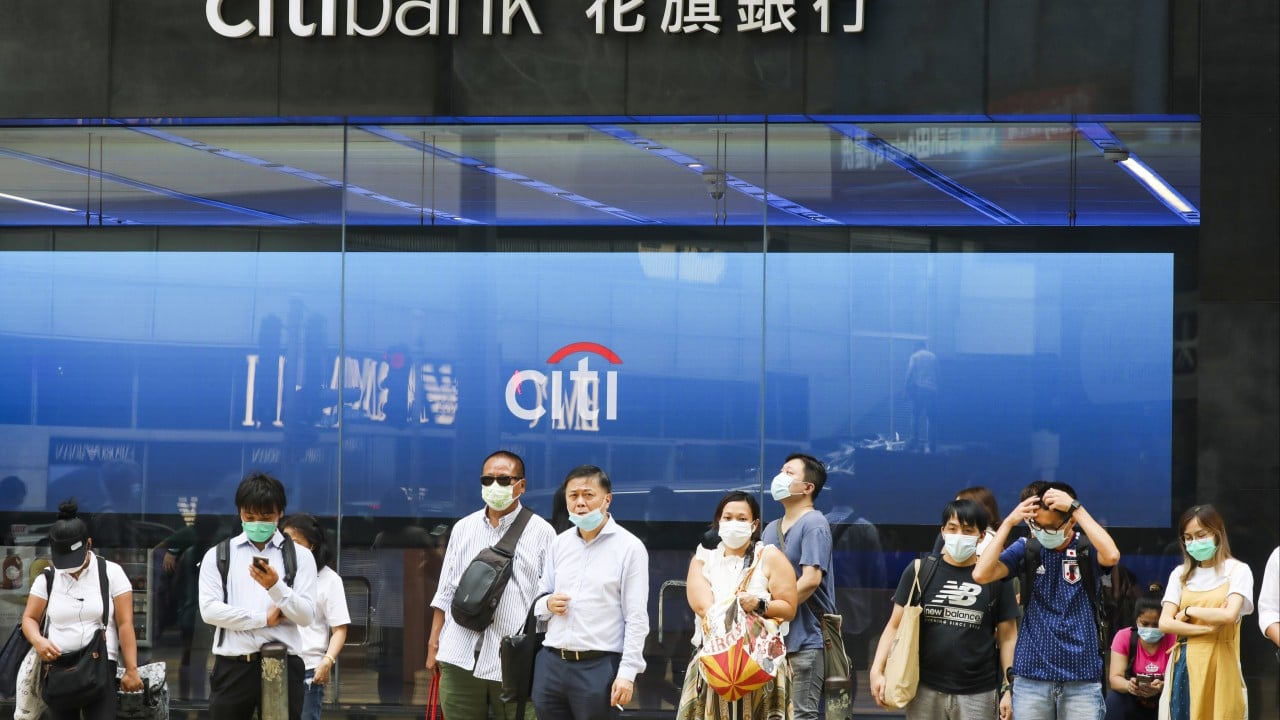Hong Kong insurance sales, investment activity and card spending rise against market-rally backdrop: Citigroup
Wealthy residents and visitors in Hong Kong are seeking more investment and wealth-management services, buying more insurance and increasing their spending via debit cards amid the market rally this year, according to a senior Citigroup executive.
“We have seen a strong growth in sales of our investment services and insurance products in the first quarter,” Vicky Kong Pik-tung, the bank’s head of wealth for North Asia and Australia, said in a media briefing on Monday.
“The growth momentum continues in the second quarter, as we have seen clients become more active in seeking investment advice for products other than time deposits. The recent stock market rally has led customers across the board to become more active in investment.”
Sales of life insurance policies to mainland visitors in Hong Kong in the first quarter amounted to HK$15.63 billion (US$2 billion), according to Insurance Authority figures last Friday, a 63 per cent jump from HK$9.61 billion a year earlier.
Hong Kong’s stock market snapped a four-year losing streak to stabilise in the first quarter and rally starting in April. The benchmark Hang Seng Index is up 7 per cent this year, coming back from a drop of almost 14 per cent last year, after China introduced measures to support the mainland property market and encourage more cross-border trading between Hong Kong and mainland China.
Kong said Citigroup saw 24 per cent combined annual growth in the first quarter for its prestige accounts: Citigold, which requires minimum investible assets of HK$1.5 million, and Citigold Private Client, which requires assets of US$1 million.
International clients are driving the growth, driven largely by a 118 per cent increase in Greater Bay Area clients opening accounts in Hong Kong during the quarter.
“With the Hong Kong government promoting family offices, a talent import scheme, and the Capital Investment Entrant Scheme [CIES], many wealthy customers from mainland China and other parts of the world have come to Hong Kong,” Kong said.
“Citi is well prepared to provide all types of insurance, bonds, equity-linked notes and other wealth-management services for these customers.”
To attract wealthy customers to set up family offices to manage their wealth and charity activities, the Hong Kong government introduced tax incentives in May last year. In March this year, it also introduced a revamped CIES, providing residency to those who invest HK$30 million or more in stocks, bonds, insurance or non-residential properties.

The government has received more than 200 applications from wealthy customers who want to move to Hong Kong via the CIES, Secretary for Financial Services and the Treasury Christopher Hui Ching-yu said last week.
Besides the demand for more investment services, Kong said more clients are demanding debit cards. Transactions using the bank’s debit cards tripled in 2023 compared with the pre-Covid level in 2018, outperforming credit cards, which grew about 40 per cent in the same period, she said. However, credit cards remain the mainstream choice, accounting for 95 per cent of all card transactions last year.
“Many overseas shops and restaurants now accept digital payments, so many travellers no longer bring cash, but they like to use debit cards or credit cards,” she said.
Citi launched a new elite debit card on Monday with a limit of HK$300,000 per day, compared with HK$100,000 per day for its normal debit card.


